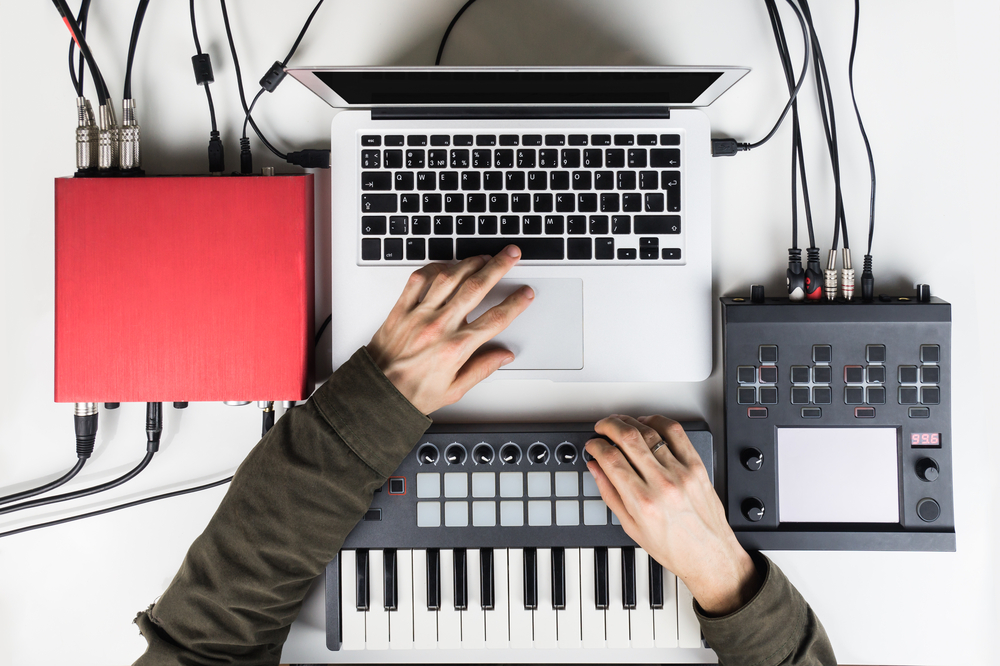Discover the art of music production with comprehensive online courses. Master the techniques, tools, and software used by professionals to create captivating music. Join now and unlock your potential in the world of music production.
In today's fast-paced, technology-driven world, music production has become an increasingly popular field of study for aspiring musicians, sound engineers, and producers. As the demand for high-quality audio content continues to grow across various media platforms, the need for skilled professionals in the music production industry is evident. With the evolution of the internet and digital learning platforms, music production programs are now accessible to students both online and in-person, offering a range of options to fit different learning styles, schedules, and budgets. In this article, we will explore the various types of music production programs available, delve into some of the best-rated programs across the country, discuss the typical duration of these educational paths, outline the types of programs you can enroll in, and provide an overview of the average costs associated with music production programs.

Best Rated Programs Across the Country:
The landscape of music production education is diverse, with several programs earning high praise from industry professionals and students alike. Renowned institutions such as the Berklee College of Music offer comprehensive online and on-campus programs that cover all aspects of music production. The colleges online division, Berklee Online, has gained recognition for its quality instruction and flexible learning environment.
Another well-regarded institution is the Full Sail University, located in Winter Park, Florida. Full Sail offers a range of music production degrees, including an online Bachelor of Science in Music Production that emphasizes hands-on learning with industry-standard software and equipment.
On the West Coast, the Los Angeles Recording School, a division of the Los Angeles Film School, provides students with immersive, in-person programs that teach the technical and creative aspects of music production. Their Associate of Science in Audio Production and Bachelor of Science in Audio Production degrees are both highly sought after by students wishing to break into the music industry.
Additionally, the Clive Davis Institute of Recorded Music at New York University's Tisch School of the Arts offers a cutting-edge curriculum that combines artistic practice with business strategy and technical training.
How Long It Takes to Complete Programs:
The duration of music production programs can vary widely depending on the level of certification or degree being pursued. Certificate programs can be completed in as little as a few months, whereas diploma programs may take anywhere from one to two years. Associate degrees typically require two years of full-time study, while bachelor's degrees usually take four years to complete.
For those seeking advanced knowledge and skills, master’s degree programs are available and often require an additional one to two years of study beyond a bachelor’s degree. Additionally, some institutions offer accelerated programs or part-time study options, which can either shorten or extend the time to completion based on the student's availability and pace.
Types of Programs:
Music production programs come in various shapes and sizes, each designed to cater to specific educational and career goals. Certificate and diploma programs focus on practical skills and are geared toward individuals looking to quickly enter the workforce or enhance their current abilities. These programs typically offer coursework in audio engineering, mixing, mastering, and music theory.
Associate and bachelor's degree programs offer a more comprehensive education, combining technical training with general education courses. These programs often include classes in composition, music business, sound design, and post-production, in addition to providing hands-on experience with studio equipment.
For those interested in research, teaching, or high-level industry positions, master's degree programs offer specialized training that delves deeper into subjects like advanced sound engineering, acoustics, and digital audio theory.
Average Costs of Music Production Programs:
The cost of music production programs can fluctuate greatly based on factors such as the type of institution, program length, and geographic location. Certificate and diploma programs can range from a few thousand dollars to over $20,000, depending on the school and the program's depth.
Associate and bachelor's degree programs are typically more expensive, with costs potentially ranging from $20,000 to $120,000 or more for the entire program. Public colleges and universities generally offer lower tuition rates than private institutions.
Master's degree programs can also vary widely in cost, from around $30,000 to $70,000 or more, again influenced by the institution's prestige and location.
It's important to note that these costs often do not include additional expenses such as textbooks, software, and equipment, which can add a significant amount to the total investment in a music production education.
The journey to becoming a skilled professional in the field of music production is filled with exciting educational opportunities. Whether online or in person, there are a plethora of programs tailored to meet the diverse needs and aspirations of students. From the best-rated programs at prestigious institutions like Berklee College of Music and Full Sail University to more localized offerings, the options are vast and varied. Depending on the level of depth and specialization desired, students can expect to spend anywhere from a few months to several years completing their studies, with costs reflecting the scope and prestige of the program.
The decision to invest in a music production program should be made with careful consideration of one's career goals, budget, and personal circumstances. By thoroughly researching and comparing the programs available, students can find a path that aligns with their passions and sets the stage for a successful career in the dynamic and ever-evolving world of music production.